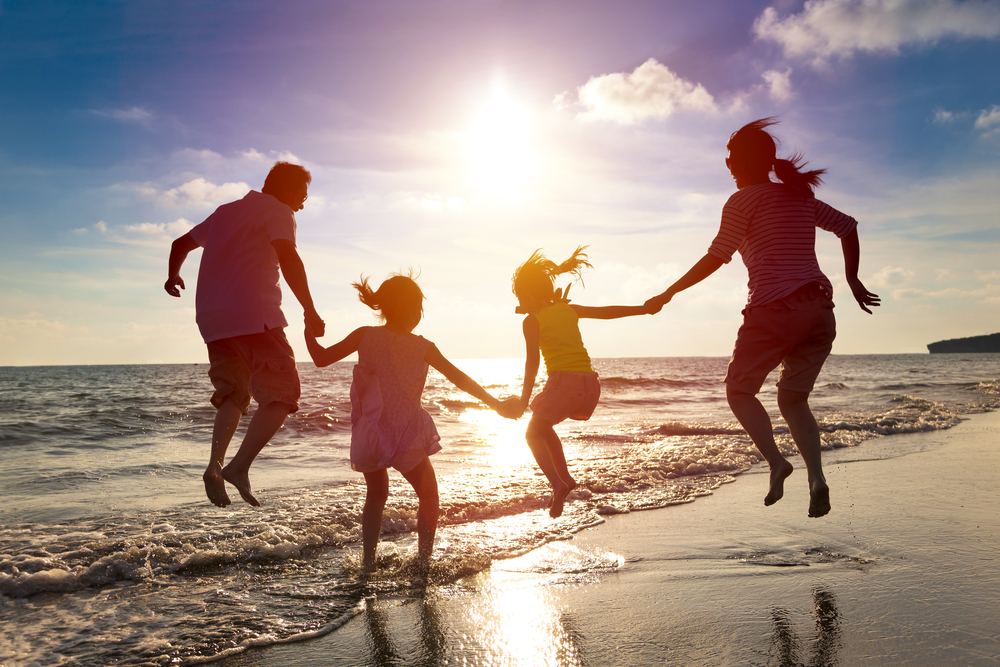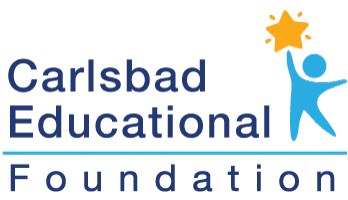
What to Do with Your Kids this Summer (or anytime really)
By Tora Bueno, Parent in Carlsbad Unified School District
I listened to Dr. Lisa Damour’s podcast episode, How Should Kids Spend Summer 2022?, and wanted to share her wonderful suggestions. Each of them struck me as evergreen for maintaining good mental health year long, but so much easier to implement in the long days of summer.
Get Adequate Sleep
Non-negotiable. According to Dr. Damour, elementary school children need 11 or more hours of sleep per night, middle schoolers 10 hours, and high school kids 9 hours (here are the CDC guidelines). What the recommendations suggest is a lot more than we clock in our household, and I thought I was a good guardian over my family’s sleep.
One strategy to help sleep cycles is to always wake up at the same time every day. (It’s easier than regulating bedtime). If I am awake at six I try to be in bed around 8 or 9 p.m. I ban all screens an hour before bedtime and don’t let my middle schooler have his phone or Nintendo Switch in his room at night. Seeing my son’s friends messaging one another on video games and social media at all hours of the night, even on school nights, makes me realize they are not ready for devices in bedrooms yet.
Learn Something New
One effect of the Covid-19 pandemic is that social distancing requirements and school closures limited children’s exposure to new experiences and peer interaction. Dr. Damour suggests going to YouTube where literally anything can be learned, from how to fix a sink, to juggling, to learning a new instrument.
I can attest to this as my son taught himself guitar by watching Marty Schwartz tutorials after getting a guitar for Christmas (you can pick up a used instrument on OfferUp for relatively little money). My daughter has become a proficient vegan baker thanks to TikTok. A beginner’s mind is highly prized in eastern philosophy and there is truly nothing like being a beginner to heighten awareness, clear your mind, and open your ears. It’s hard to try new things so I am including this article for inspiration.
Take Safe Risks
Surf, dirt bike, canyoning, kayaking, bouldering, camping, skateboarding. Dr. Damour says safe risks build resilience in children (and ourselves) against anxiety and fear. Learn to be comfortable with discomfort. She recommends the books, 50 Risks to Take with Your Kids, by Daisy Turnbull Brown, The Daring Book for Girls, and, The Dangerous Book for Boys. I would add, Unbored, by Joshua Glenn and Elizabeth Foy Larsen, a gorgeously illustrated book my family has owned and loved for more than a decade.
The Goodreads review of Turnbull’s recommendation, 50 Risks to Take with Your Kids, writes: “It’s about nurturing independence and resilience, teaching kids to recognize and assess risks themselves, and readying them to take on life and all that it brings. And it’s about having fun and connecting as a family along the way.”
On a personal note, I have struggled with fear and anxiety my whole life and I will attest to the value of taking safe(ish) risks and trying something new. I recently took up surfing. I rarely go out willingly and always come home feeling spent and calm. Something about taking an actual risk with actual danger has stopped my circular thinking about perceived or possible dangers. Also, being in nature and with my family with low expectations of looking cool and a constant beginner mind has done wonders for my mental health.
Meet New People
Try introducing your child to kids outside their own age. In the parenting book, Escaping the Endless Adolescence, (hands down my favorite), authors Claudia Worrell Allen, Ph.D, J.D. and Joseph Allen, PhD, delve into how teenagers used to mix with people of all ages on a regular basis. Summer camp, a job, or volunteer work is a great place to meet new people and mingle with a variety of different ages. This helps broaden their minds and perspectives on life. Carlsbad Educational Foundation has summer options for all students, from grades TK – 12.
This comes back to the third suggestion, be comfortable with discomfort when trying something new. The pandemic has made many people’s lives more insular than they once were and meeting new people shakes us out of our shells.
Be of Service
Dr. Damour urges us to make our children contribute beyond themselves. This is something the book, Escaping the Endless Adolescence, hits on as well. Helping others helps us feel better. It gives our lives meaning and, as Dr. Jordan Peterson and philosophers and psychologists throughout the ages have said, meaning makes life bearable.
Dr. Damour suggests small things: craft cards for people in hospitals, help an elderly neighbor with yard work, or ask your children to plan and cook a dinner once a week. I already shop and cook with my daughter, and this summer I will teach my son how to choose produce and make a balanced meal from scratch.
The lovely thing about Dr. Damour’s list is that we can combine any of the above tips to improve the quality of our life. Baking for charity, for instance, might hit suggestions 2, 4, and 5. Damour also mentions Rob Lieber’s book, The Opposite of Spoiled, about teaching children how to save, spend, and give money. Overall, Dr Damour says to let go of the agenda and enjoy each other’s company in the moment.
Her last tip for parents and guardians is to think about what would make us, the adults, feel good this summer. Fill yourself up too and have a great summer!
